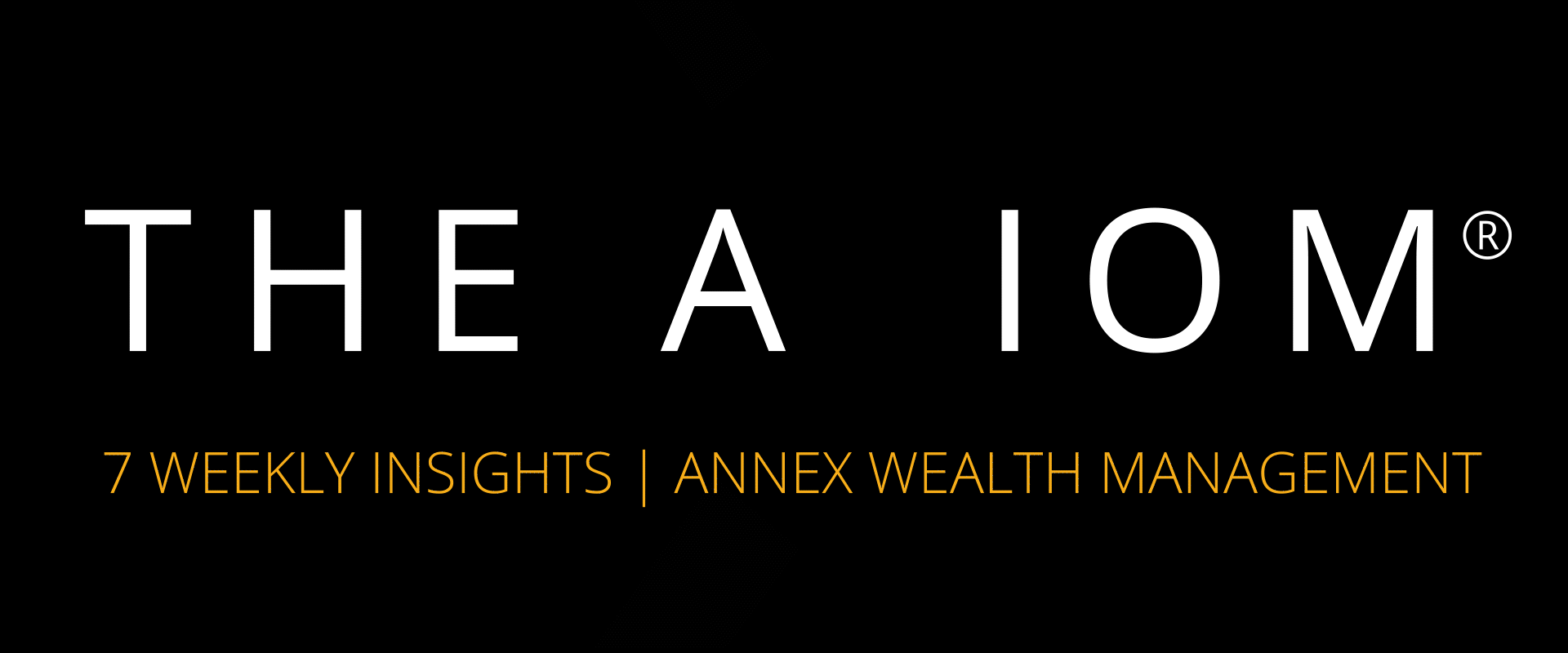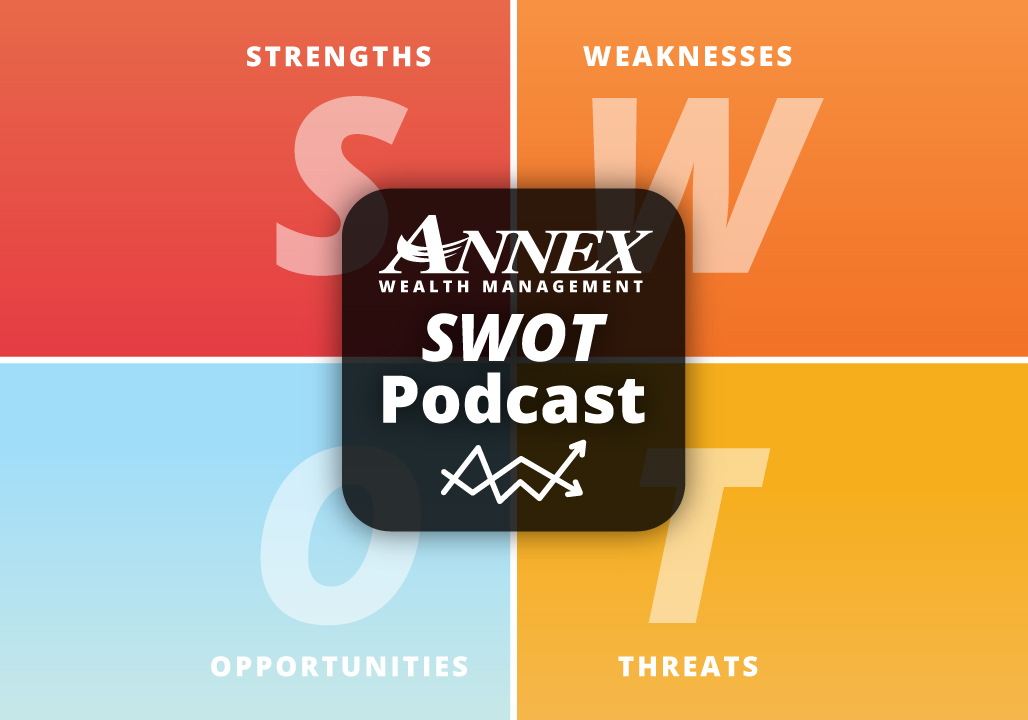
1. Atlanta Fed Report: US Economy More Durable Than Expected 2. Where Are You Planning To Retire? 3. Get Your Graphonomics: Volume 3 4. Review Your Retirement Plan Contributions & Investments 5. Ask Us A Question! 6. “Change before you have to.” 7. Retirement: Beyond The Financial Plan
Economists previously guaranteed a recession – but the recent Atlanta Fed Report says otherwise. Annex Wealth Management’s Dave Spano and Brian Jacobsen discuss.

The results are in from last week’s poll question: Where are You Planning to Retire?
-
- 3% Desert Home
- 8% Mountain Escape
- 13% Beach House
- 13% Cabin up North
- 64% Right where you are
Overwhelmingly, over half of our audience shared that they are planning to stay right where they currently are living when they retire! According to information shared by Patrick Villanova in SmartAsset’s 2023 study on where retirees are moving this isn’t too surprising. Fixed incomes are being challenged to stretch as far for retirees with the current impact from high inflation and a sharply fluctuating stock market. Retirees are also staying in their current locations due to an emotional connection to family, friends, the home itself and not wanting the perceived stress that accompanies moving.
Many retirees have spent an extended amount of their lives in their current homes and have a greater likelihood of relationships built over this time within the neighborhood. These relationships can provide emotional support, fellowship and a sense of belonging. The closeness and comfort of staying in a location they are confident in can be a strong reason to remain. Retirees may also prefer their current environment they are living in and are not looking to experience another climate, even living in Wisconsin.
Healthcare is another area to consider when making the decision to move during retirement. Having access to quality healthcare is critical in retirement. Retirees appear to be choosing to continue living in communities upon retirement with well-established healthcare services and facilities to continue current, adequate medical care for specific needs or to prepare for future conditions. Mental health may also play a role in the decision to move or stay during retirement. Moving can be stressful and emotionally depleting and may decrease proximity to family members such as children or grandchildren, which may cause an emotional void.
Retirees who own their properties outright may be cautious to sell and bring on new debt due to the complications and unpredictability of the real estate market. In addition to acquiring new debt, moving more than likely has financial implications that adhere alongside it. These additional costs can be significant and include agent fees, moving expenses, and any renovations that may need to be completed on the new property or on the current property to bring it up to code or expectations of the new buyers.
While some retirees do choose to move, and there are locations that appear to be more desirable than others, these reasons bring to light why some may decide to remain in their current homes during their golden years (Source).
BACK TO TOP ↑
The Difference Maker Of The Game
Brewers vs. White Sox | August 13, 2023

Click to listen!
Check out the full archive HERE.
BACK TO TOP ↑
Review Your Retirement Plan Contributions & Investments
Many of us have experienced a devastating economic disruption throughout our lifetime. Whether it is the tech bubble, 9/11, the Great Recession, or COVID-19, recent history tells us we can expect an economic hurdle about once every 10 years.
These major economic events can certainly have an impact on your retirement plan. What steps should you be taking to minimize the damage?
This week’s MoneyDo: Review your retirement plan contributions and investments.
-
- Contributions – Review what you’re contributing in light of your age and retirement goals.
-
-
- Remember, it’s important to continue to contribute to your plan. Rough waters shouldn’t deter you from your plan.
- If you started contributing at the beginning of your career, then 10-15% of your gross pay is usually a good benchmark. Expect to contribute more if you got a late start to saving.
- Keep in mind the contribution limits for some common types of accounts:
-
-
-
-
- IRA/Roth IRA: $6,500 limit in 2023 (with an additional $1,000 catch-up contribution if you are age 50 or older, for a total limit of $7,500)
- 401(k), 403(b), or 457(b): $22,500 in 2023 (with an additional $6,500 catch-up contribution if you are age 50 or older, for a total limit of $27,000)
-
-
-
- Investments – Most of us receive very little guidance on how to structure our retirement plan. Often, you’ll get a list of funds with performance over specific time spans, and it’s up to you to pick what’s best.
-
-
- You may be drawn to the fund with the highest returns, but consider investing in several different asset classes.
- Work with your company retirement plan provider or a financial planner to develop an asset allocation plan – a written determination of what percent of assets should be in each class.
- As the market fluctuates, the percentage of assets in each class will change. On a periodic basis, it’s important to move money between the funds to return them to your agreed upon allocation plan. This is called re-balancing.
-
Consider this MoneyDo essential to your financial AND mental health. Establishing and maintaining your retirement contributions and investments gives you a better understanding of what you own and where you’re headed. In the end, both you and your retirement plan will likely be better positioned to handle major economic disruptions.
BACK TO TOP ↑

BACK TO TOP ↑
BACK TO TOP ↑
Annex Wealth Management provides free workshops, open to the public, on key wealth management topics.
BROWSE EVENTS →
